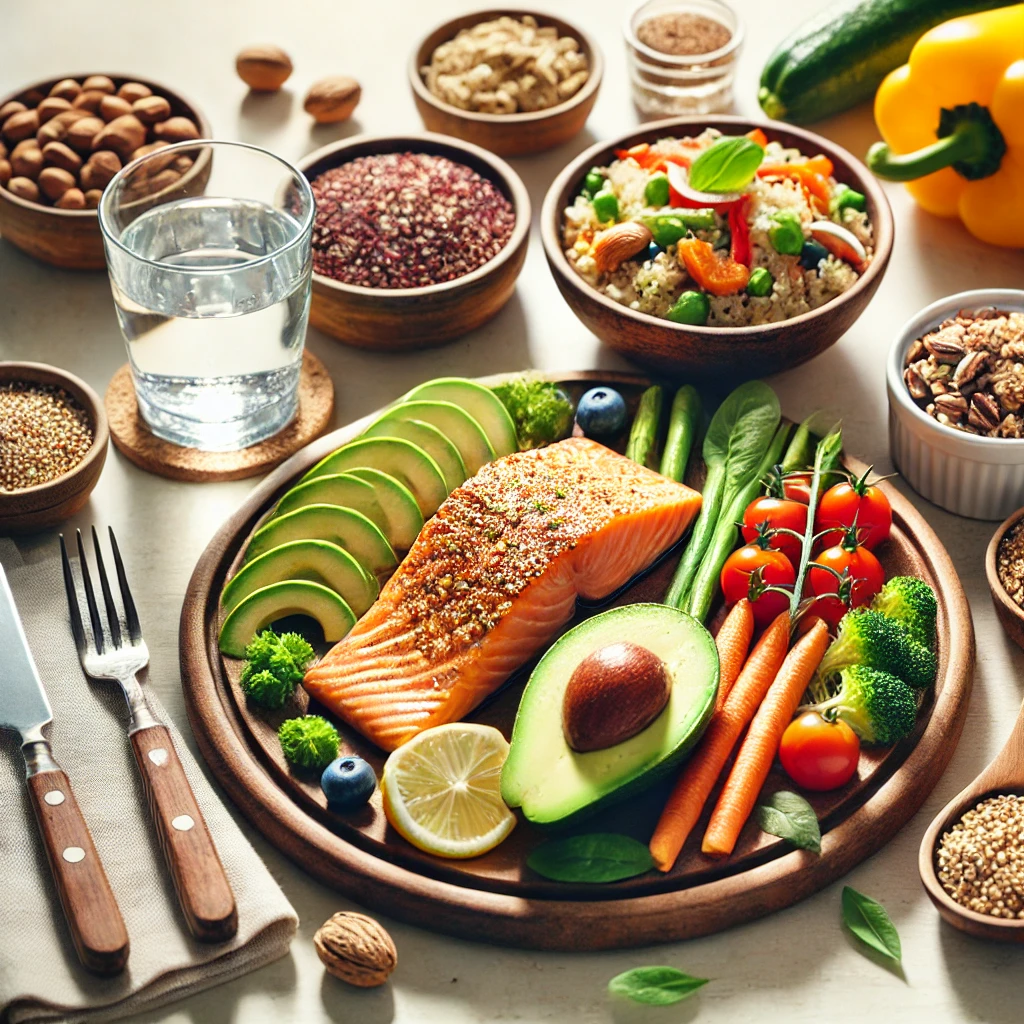
Good Bulking Workout Routine for Strength & Muscle Growth
A Complete Bulking Plan to Gain Weight and Build Strength
Published on March 16, 2025
If you want to gain weight and build muscle, you need a good bulking workout routine that focuses on strength training, proper calorie intake, and compound lifting. Many people think bulking is just about eating more food, but without the right bulking exercises and structured workout schedule for bulking, you may gain body fat instead of muscle.
This guide will give you a step-by-step bulking plan, a workout schedule for bulking, and a high-protein diet to help you maximize muscle growth while keeping fat gain under control.
What is a Bulking Workout Routine?
A bulking exercise program helps you increase muscle size and strength by following a structured training plan and increasing your calorie intake. The key elements of a good bulking workout routine include:
- Strength Training with Compound Lifting – Focus on movements like bench presses, deadlifts, and front squats that work multiple muscles at once.
- Caloric Surplus – Consume more calories than you burn to fuel muscle growth.
- Protein Intake – Get enough grams of protein per day to support muscle repair.
- Progressive Overload – Increase weights and reps over time to keep challenging your muscles.
- Rest and Recovery – Take at least one rest day a week to allow muscles to grow.
Best Bulking Workout Plan: 5-Day Strength Training Routine
This best bulking workout plan follows a push-pull-legs (PPL) split, allowing you to train each muscle group effectively while optimizing recovery. Perform 8-12 reps per set for 3-4 sets per exercise, resting 60-90 seconds between sets.
Workout Schedule for Bulking
- Day 1: Push (Chest, Shoulders, Triceps)
- Day 2: Pull (Back, Biceps)
- Day 3: Legs & Core
- Day 4: Rest or Active Recovery
- Day 5: Push (Chest, Shoulders, Triceps)
- Day 6: Pull (Back, Biceps)
- Day 7: Legs & Core
Bulking Exercise Program
Day 1 & 5: Push Workout (Chest, Shoulders, Triceps)
- Bench Press (Compound Lifting) – 4 sets of 8-12 reps
- Incline Dumbbell Press – 3 sets of 10 reps
- Overhead Shoulder Press – 3 sets of 8 reps
- Dumbbell Lateral Raises – 3 sets of 12 reps
- Triceps Dips – 3 sets of 10-12 reps
- Triceps Rope Pushdown – 3 sets of 10 reps
Day 2 & 6: Pull Workout (Back, Biceps)
- Deadlifts (Compound Lifting) – 4 sets of 6 reps
- Lat Pulldown – 3 sets of 10 reps
- Seated Cable Row – 3 sets of 8 reps
- Pull-Ups – 3 sets of 10 reps
- Dumbbell Biceps Curls – 3 sets of 10 reps
- Hammer Curls – 3 sets of 10 reps
Day 3 & 7: Legs & Core Workout
- Front Squats (Strength Training) – 4 sets of 8-12 reps
- Romanian Deadlifts – 3 sets of 8 reps
- Leg Press – 3 sets of 10 reps
- Calf Raises – 4 sets of 12-15 reps
- Hanging Leg Raises – 3 sets of 12 reps
- Plank Hold – 3 sets of 45-60 seconds
Rest Days & Recovery
- At least one full rest day a week for muscle recovery.
- Stretching and mobility work help prevent injuries.
- Active recovery (walking, light cardio) improves blood flow.
Best Bulking Exercises for Muscle Growth
To build muscle without too much body fat, focus on compound lifting and isolation exercises.
- Best Chest Exercises: Bench Press, Incline Dumbbell Press, Dips
- Best Back Exercises: Deadlifts, Pull-Ups, Bent-Over Rows
- Best Leg Exercises: Front Squats, Romanian Deadlifts, Leg Press
- Best Shoulder Exercises: Overhead Press, Lateral Raises, Face Pulls
- Best Arm Exercises: Biceps Curls, Hammer Curls, Triceps Dips
Bulking Diet Plan: How to Eat for Muscle Growth
A good bulking plan must include high-protein, high-calorie meals to help gain weight without excessive fat gain.
How Many Calories Should You Eat?
- Mild Bulk: 250-500 extra calories per day
- Aggressive Bulk: 500-800 extra calories per day
Macronutrient Breakdown
- Protein Intake: 1g per pound of body weight (chicken, eggs, fish, protein shakes).
- Carbohydrates: 2-3g per pound of body weight (rice, oats, pasta, potatoes).
- Healthy Fats: 0.4-0.6g per pound of body weight (avocados, nuts, olive oil).
Best Foods for Bulking
- Protein: Chicken, eggs, lean beef, Greek yogurt, whey protein
- Carbs: Rice, oats, potatoes, whole grains, fruits
- Fats: Avocados, nuts, olive oil, peanut butter
- Vegetables: Broccoli, spinach, carrots, peppers
Sample Bulking Meal Plan Meal 1: Scrambled eggs with whole wheat toast and avocado Meal 2: Protein shake with banana and peanut butter Meal 3: Grilled chicken with rice and steamed broccoli Meal 4: Greek yogurt with almonds and honey Meal 5: Steak with sweet potatoes and asparagus Meal 6: Cottage cheese with nuts before bed
Why Tracking Your Bulking Plan is Important
A personal trainer would track your workouts, but you can do it yourself with a fitness app. Tracking sets, reps, and calorie intake helps you:
- Ensure progressive overload by increasing weights when needed.
- Monitor body fat and muscle growth to avoid unnecessary fat gain.
- Adjust your diet if you're not gaining muscle at the right pace.
Get the Best Bulking Workout Plan with Pumppal
Instead of tracking workouts manually, Pumppal makes it easy to log exercises, monitor diet, and follow a structured bulking routine. Whether you need a bulking exercise program, a workout schedule for bulking, or the best bulking workout plan, Pumppal helps you gain weight and build muscle efficiently.
Don’t waste time with guesswork—download Pumppal today and start your best bulking routine!

